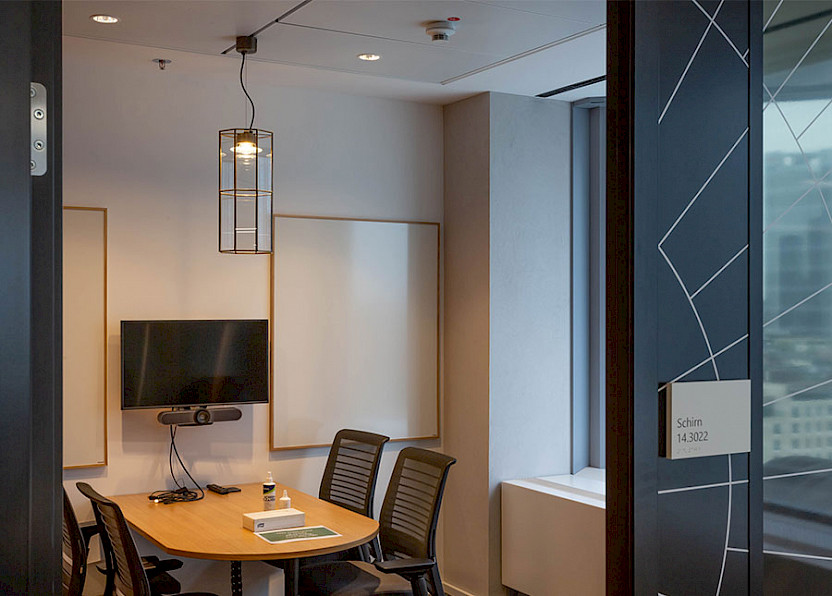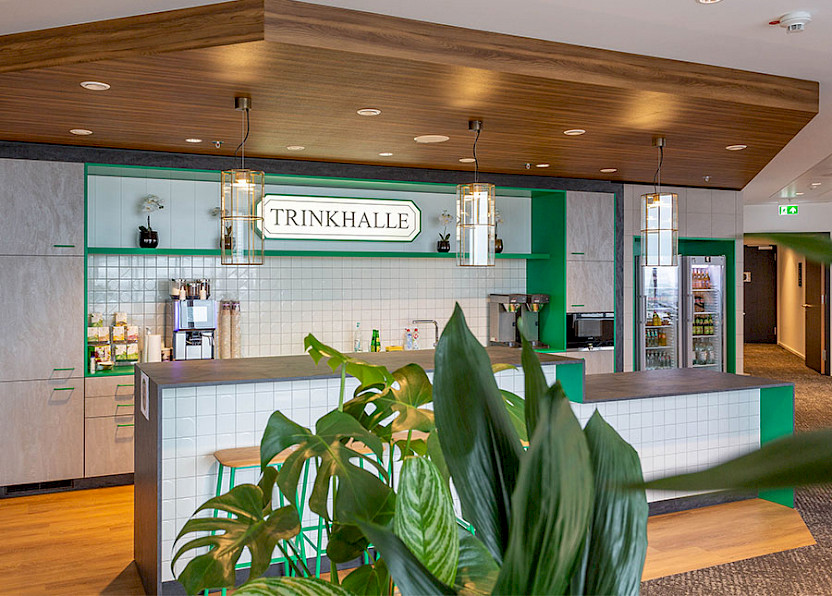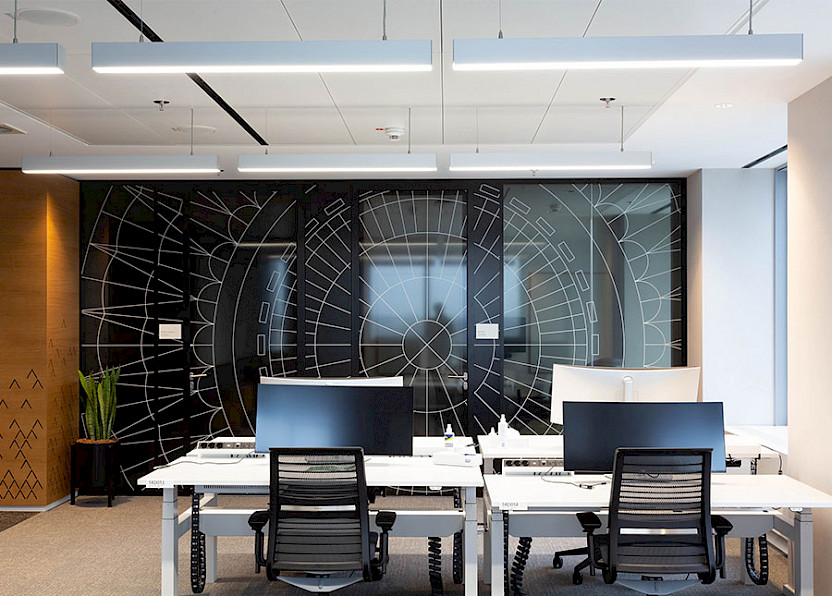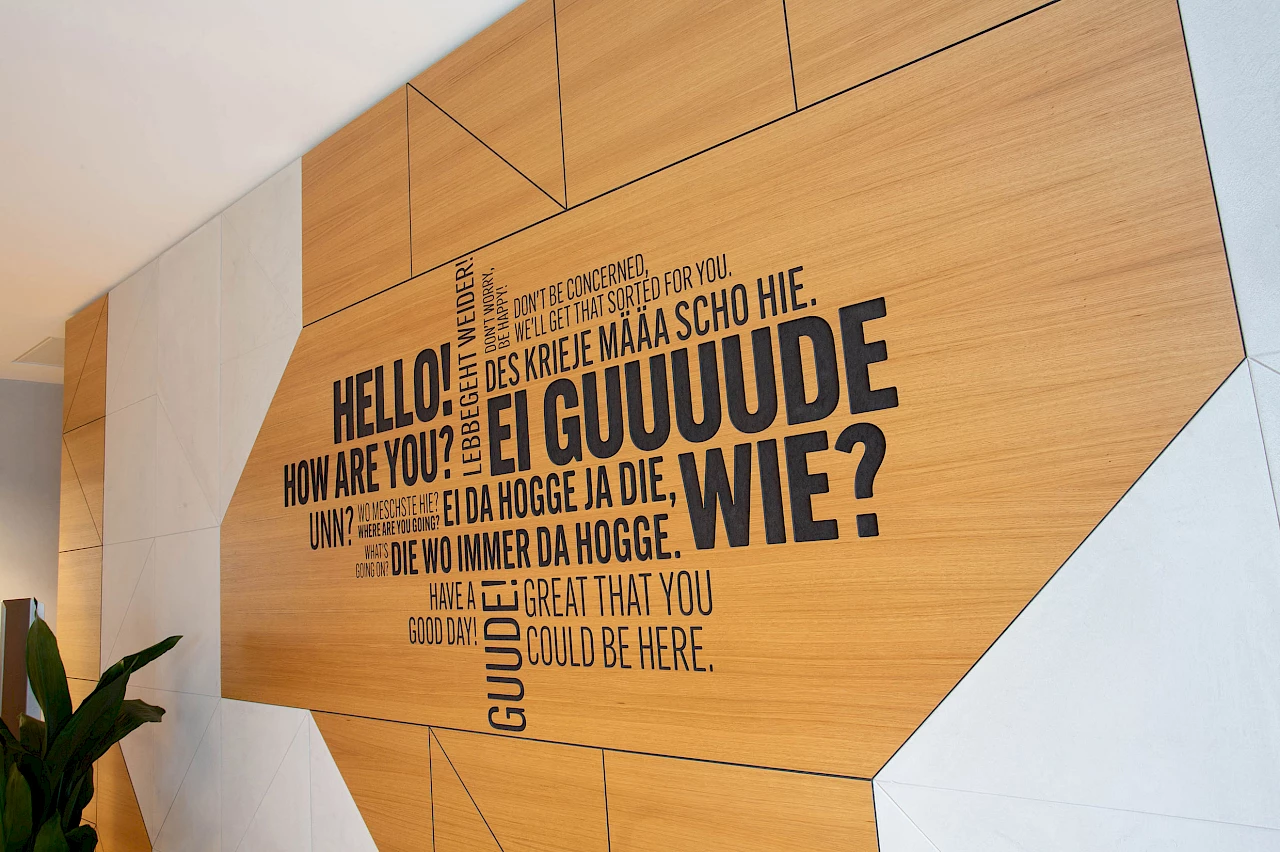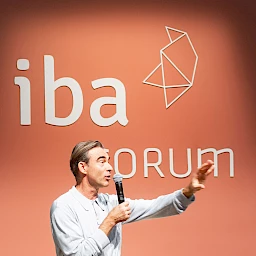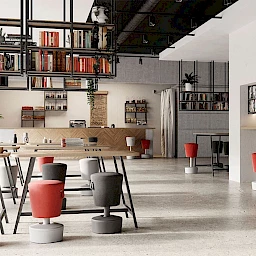With the relocation of the Microsoft office from an industrial district in Bad-Homburg to Frankfurt, Microsoft is continuing its strategy of moving to attractive and conveniently located sites in city centres and creating good conditions for hybrid working. In the new Frankfurt office, only 22 classic individual workstations are available to the approximately 220 employees, but there is a large space with collaboration and event areas as well as a number of meeting rooms.
With the new office in the Messeturm, Microsoft offers its employees a suitable working environment to achieve more both jointly and individually. The new office is also a tribute to Frankfurt’s diversity and many details from the city on the Main have been incorporated into the interior design. Whether it is the close personal exchange with colleagues or the cultivation of one’s own network: there are many reasons to work in the office in addition to working from home. For the Microsoft employees at the Frankfurt site, there are additional reasons besides the general advantages of hybrid working. For example, their new workplace, the Frankfurt Messeturm, offers a fantastic view over the Main metropolis, an underground car park with around 900 parking spaces, guarded bicycle stands and its own underground access. Frankfurt’s main railway station is a few minutes’ walk away and the airport is also easily accessible. In addition to good transport connections, the new building offers also further advantages.
Tomorrow´s world of work
In a hybrid working world, the role of offices has changed. Companies face the challenge of developing modern working environments that accommodate different activities such as sharing and co-working. They need to develop a deep understanding of how offices will be used in the future and what needs they should fulfil. One important conclusion is that in the future, offices will be used primarily for collaborative and creative work in teams and less for individual tasks. However, they must also enable close exchange with customers and partners, for example to work together on new solutions. As a result, companies need to adapt their spaces and design them in a way that invites collaboration, promotes creativity and creates opportunities for exchange.
This is exactly what the office offers its approximately 220 employees: a modern working environment that meets a wide variety of workplace needs with its flexible work zones and innovative conference and meeting rooms. In addition to the quite sufficient number of 22 classic individual workstations, the office is characterised by ten meeting rooms that optimally support hybrid working, for example, by automatically tracking the speakers via camera. This is to ensure that all participants in a meeting – no matter where they are located – feel fully included.
Modern work meets regionality
Since Microsoft emphasises regional ties, the local reference of the Frankfurt location was integrated into the design of the premises in an abstract and creative way. Regional elements such as Frankfurt landmarks (Römer, Dom, Waldstadion, Eiserner Steg), iconic personalities and the “Frankfurt warmth” were combined with symbolic IT insignia such as binary codes and wireframes and incorporated into the interior design – for example Goethe’s Faust as an oversized binary code on the wall or a real Frankfurt water house as a “drinking hall” with a bar counter. The look-and-feel of the office was also implemented overall in Goethe’s colour theory. “With our Frankfurt office, we have created an attractive space where we have tried to meet our employees’ high expectations of a workplace. We have set a high priority on offering our diverse staff a space that facilitates inclusive working: whether it is creative exchange, personal and emotional togetherness, or the feeling of identifying with a place that also serves as an anchor for our employees. With the combination of this high-quality spatial experience and the provision of optimal technologies for remote work, we show how hybrid working, but also collaboration with customers and partners, can look in the future in order to achieve more jointly,” says branch manager Sonja Bozic.
Works council member Carsten Schleicher adds: “The demands of employees on their workplace had already changed rapidly before and then in the course of the pandemic. Microsoft in Frankfurt has impressively succeeded in accommodating this transformation with a suitably modified range of services. With a design inviting people to work and feel comfortable, its own underground access and sufficient parking in a city centre location, the Frankfurt office is an attractive place for my colleagues and me to work personally and also offers a great view of the Frankfurt skyline.“
Microsoft is convinced that everyone can achieve more if their individual needs are met and has long lived the model of trusted working time and place. Based on the experience that an increasing number of employees are returning to the office, the company is gradually redesigning its workspaces to meet these requirements. Flexible, attractive locations with good transport infrastructure are becoming more important for Microsoft, which is why the Frankfurt office has a flexible working environment: no more fixed workplaces, but working environments adapted to different working needs enable every meeting to be held in a hybrid way.
